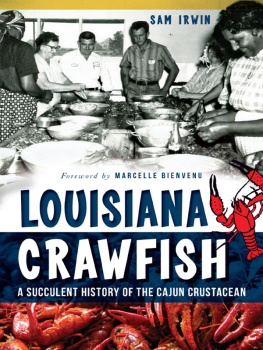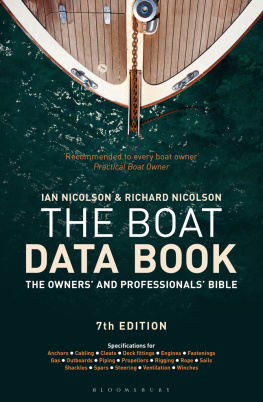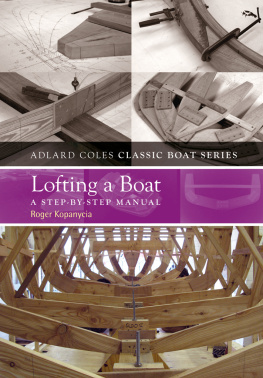
THE AMAZING CRAWFISH BOAT
Folklore Studies in a Multicultural World
The Folklore Studies in a Multicultural World series is a collaborative venture of the University of Illinois Press, the University Press of Mississippi, the University of Wisconsin Press, and the American Folklore Society, made possible by a generous grant from the Andrew W. Mellon Foundation. The series emphasizes the interdisciplinary and international nature of current folklore scholarship, documenting connections between communities and their cultural production. Series volumes highlights aspects of folklore studies such as world folk cultures, folk art and music, foodways, dance, African American and ethnic studies, gender and queer studies, and popular culture.
Squeeze This!
A Cultural History
of the Accordion in American
Marion Jacobson
(University of Illinois Press)
The Jumbies Playing Ground
Old World Influence on Afro-Creole
Masquerades in the Eastern Caribbean
Robert Wyndham Nicholls
(University Press of Mississippi)
The Last Laugh
Folk Humor, Celebrity Culture, and
Mass-Mediated Disasters in the Digital Age
Trevor J. Blank
(University of Wisconsin Press)
The Painted Screens of Baltimore
An Urban Folk Art Revealed
Elaine Eff
(University Press of Mississippi)
A Vulgar Art
A New Approach to Stand-Up Comedy
Ian Brodie
(University Press of Mississippi)
Ukrainian Otherlands
Diaspora, Homeland, and Folk Imagination
in the Twentieth Century
Natalia Khanenko-Friesen
(University of Wisconsin Press)
Improvised Adolescence
Somali Bantu Teenage Refugees in America
Sandra Grady
(University of Wisconsin Press)
Stable Views
Stories and Voices from
the Thoroughbred Racetrack
Ellen E. McHale
(University Press of Mississippi)
The Amazing Crawfish Boat
John Laudun
(University Press of Mississippi)
THE
AMAZING
CRAWFISH
BOAT
JOHN
LAUDUN
www.upress.state.ms.us
The University Press of Mississippi is a member of the Association of American University Presses.
All illustrations are by the author unless otherwise noted.
Publication of this book is supported by a grant from the Andrew W. Mellon Foundation.
Copyright 2016 by University Press of Mississippi
All rights reserved
Printed in Canada
First printing 2016
Library of Congress Cataloging-in-Publication Data
Names: Laudun, John, author.
Title: The amazing crawfish boat / John Laudun.
Description: Jackson, Mississippi : University Press of Mississippi, 2016. | Series: Folklore studies in a multicultural world series | Includes bibliographical references and index.
Identifiers: LCCN 2015025349| ISBN 9781496804204 (hardback) | ISBN 9781496804211 (ebook)
Subjects: LCSH: Crayfish cultureLouisianaHistory. | CrayfishouisianaHistory. | BISAC: SOCIAL SCIENCE / Folklore & Mythology. | TECHNOLOGY & ENGINEERING / Fisheries & Aquaculture.
Classification: LCC SH380.92.U55 L38 2016 | DDC 639/.6409763dc23 LC record available at http://lccn.loc.gov/2015025349
British Library Cataloging-in-Publication Data available
FOR MY PARENTS
who, through an endless parade of gadgets,
each with its own fierce optimism for a better world,
made me into the curious optimist that I am.How do I know? Experience, sir, experience.Dale Olinger
CONTENTS
INTRODUCTION
This is the story of the crawfish boat, a very particular machine that seems to have emerged on a particular landscape at a particular point in time. Because of these particularities, it might be tempting to see the story as confined, constrained in meaning and relevancy, but in order to understand how the boat came to be, we have to understand the landscape out of which it emerged. In order to understand the landscape, we have to see it as the people who live and work on it see it. In order to understand them, we need to listen to what they say and watch what they do, and that is never as easy as it sounds. But if there is science in this, it is in the particularities, the exact facts that are to be found both in the things that we can see and touch as well as the things that we can hear if we linger long enough in doorways as people tell us about the world as they understand it.
And so this is really the story about the people who brought the crawfish boat into existence, almost whole-cloth, like Athena springing from Zeuss brow. In telling this story, I am both reaching back into the past as well as recounting events that happened only yesterday and will happen again tomorrow. The men who invented the crawfish boat were and are farmers and fabricators. They are ordinary men: they get up in the morning and walk or drive to their shops or equipment sheds, which in many instances are next door to their homes.
If they are farmers, they survey fields full of rice or soybeans or full of water for crawfish. They worry about the weather. Will it rain in time so that they do not need to start up their well pumps or has it rained so much that they need to pull drains and let things dry? Will the predicted severe storms lay their rice crop, tan and heavy with full kernels, down on the ground, making it impossible to harvest, or will they have the chance to run their combines, harvest their rice, and take their chances with what the mills are paying this year? How they answer those questions will determine what tractor they climb into, what tool they attach to it, and how they will proceed throughout their day. They will work mostly alone, on no ones clock but their own in consultation with Mother Nature, whose indulgence they court and whose scorn they consider their fitful burden.
If they are fabricators, they are already thinking about the jobs queued up for the day, fully knowing that at least one major and several minor emergencies will come barging into the shop to break up any neatly planned schedule. A farmer will need something tacked back together well enough to work for the time being and they will need it now. Someone else will come in with a job and they will want to discuss it in detail now. Some piece of inventory that they thought they had in stock and is required for a job will need to be ordered now, and it will require cleaning hands and going into the office where they will be chilled by the lovely air-conditioning and comforted by a soft desk chair only to have to rise again to crawl back under a tractor or grain cart or crawfish boat, reaching past crusted mud or rotting rice or crawfish or hanging wasp nests, in order to get back to work.
They are ordinary men. They are, as the historian Francis Andrews observed about makers from another time and place, men who are doing ordinary work as they know it... [without] any idea of doing a great and notable thing or one privately inspired by any name to be made in the success of it.
One response is not to care, to write history as if ages produce buildings or cultures invent jokes. It is not a terrible shorthand. It is not a whole-cloth obfuscation of any underlying actualities. But such abstractions, sometimes idealizations, do shorten and obscure a much more complex reality that deserves our full attention, if only for a short time; a reality that is complex because it is made up of people, people with different attitudes and different experiences.











